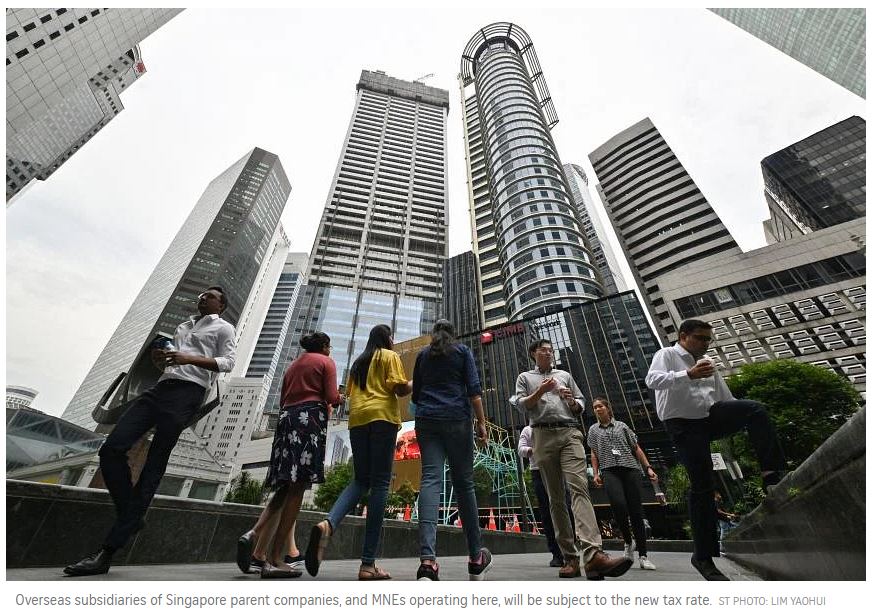Budget 2023: Singapore to introduce 15% minimum effective tax rate for large MNEs in 2025
SINGAPORE – A global minimum effective tax rate of 15 per cent will be introduced for large Singapore multinational enterprises (MNEs) in 2025, amid a broader international move to ensure a more transparent tax environment.
Singapore will also implement a domestic top-up tax that will raise large MNE groups’ effective tax rate here to 15 per cent.
These changes mean that overseas subsidiaries of Singapore parent companies, and MNEs operating here, will be subject to the new tax rate.
They will be implemented from businesses’ financial year starting on or after Jan 1, 2025.
The Republic is making these changes under the Base Erosion and Profit Shifting initiative, or BEPS 2.0, a global framework for the reform of international tax rules.
There are two pillars in the framework, with the first reallocating profit of the largest and most profitable MNEs from where activities are conducted to where consumers are located.
The second pillar introduces the 15 per cent global minimum effective tax rate for MNE groups with annual global revenues of €750 million (S$1.07 billion) or more, under its Global Anti-Base Erosion rules, among other things.
Deputy Prime Minister and Finance Minister Lawrence Wong said Singapore’s corporate tax system will be affected by the second pillar.
“However, many jurisdictions have not announced their implementation plans. Some key parameters of Pillar Two have only been finalised this year while others remain under discussion at the international level,” he said in his Budget speech on Tuesday.
These developments come after DPM Wong announced in Budget 2022 that Singapore was exploring a top-up tax in response to changes to international tax rules.
The Republic was among 130 jurisdictions to join a landmark agreement in October 2021. The deal provides a framework for the reform of international tax rules, and backs the global minimum effective corporate tax of 15 per cent from 2023.
DPM Wong noted on Tuesday that the European Union recently announced its plans to implement the BEPS 2.0’s second pillar in phases, starting effectively from 2024. Other jurisdictions such as Britain and Switzerland have announced their intention to do the same.
DPM Wong said: “As the rules will be implemented progressively, the full effects will only be felt in 2025 or later.
“Given these developments, I intend to implement Pillar Two from 2025, as part of the broader international move to align minimum global corporate tax rates for large MNE groups.
“At the same time, we will review and update our broader suite of industry development schemes to ensure that Singapore remains competitive in attracting and retaining investments.”
However, he added that the developments on BEPS 2.0 are fluid, and the Government will continue to monitor international developments.
He said: “If there are additional delays, we will adjust our implementation timelines. We will continue to engage companies and give them sufficient notice, well ahead of any changes to our tax rules or schemes.”
Source: https://www.straitstimes.com/singapore/politics/budget-2023-singapore-to-introduce-15-minimum-effective-tax-rate-for-large-mnes-in-2025


 English
English




